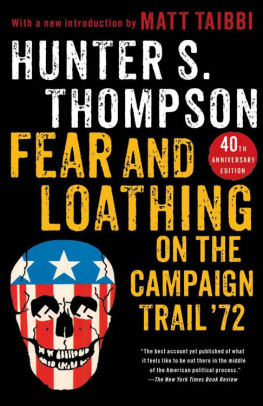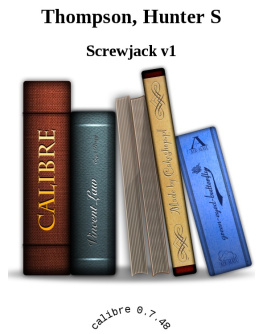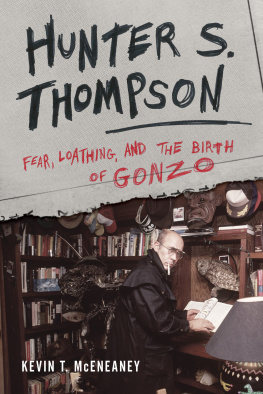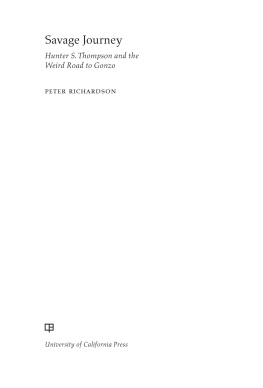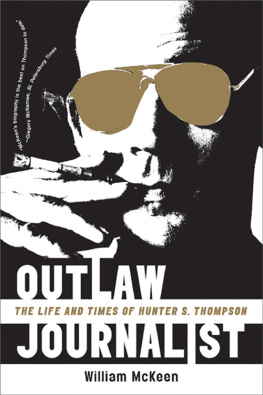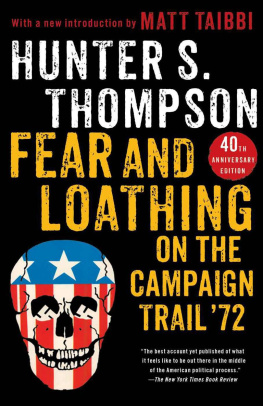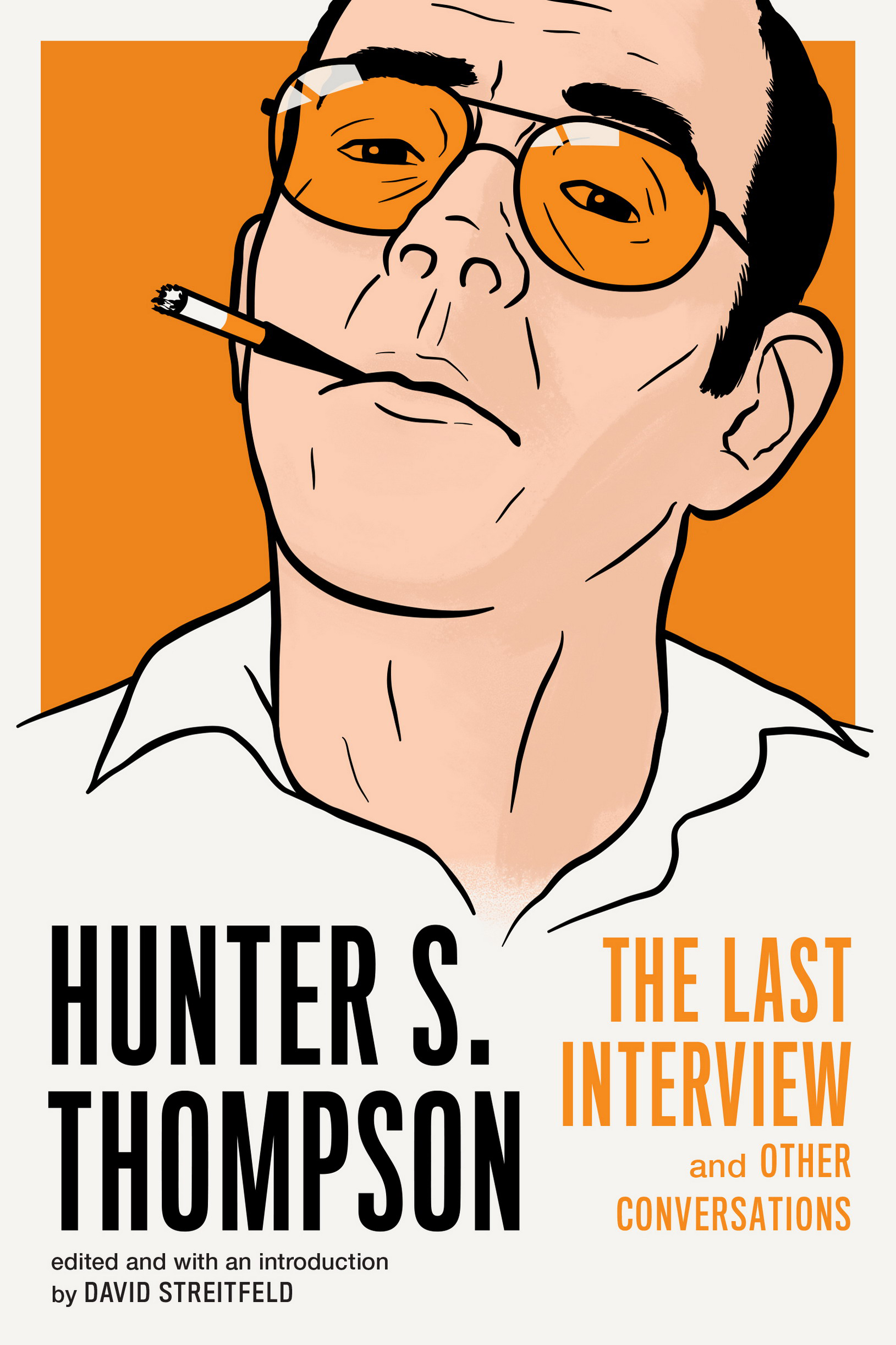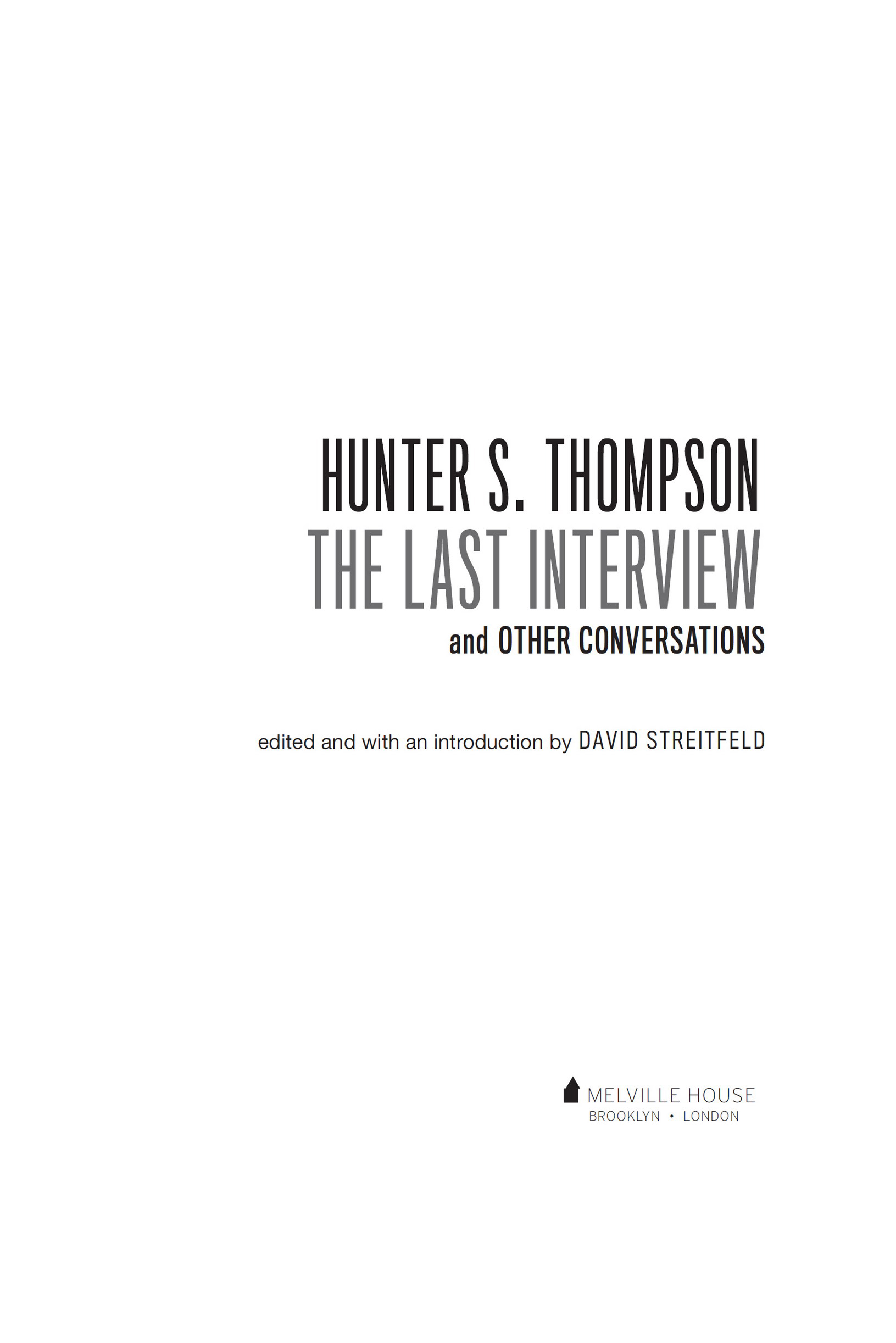INTRODUCTION
DAVID STREITFELD
I once spent many agonizing minutes watching Hunter Thompson, who liked to boast that he could use the English language as both a musical instrument and a political weapon, trying to sign his name.
This was in late 1990, in a hotel room in New York City. A publicist asked him to autograph his latest book before she left, a little souvenir of hours spent trying to get the writer to do the most basic things, like get out of bed. Hunter would start writing, get distracted, pause, gather his wits, stare at his hand as if it were an alien life form, throw something. I thought, Signed books by this guy must be really scarce.
A few decades later, with Gonzo nostalgia in full swing, eBay was auctioning a signed copy of Generation of Swine or Songs of the Doomed nearly every day, usually with just the scribbled letters HST. Collectors sometimes bid hundreds of dollars. Most of the autographs must be fake, but probably a few are real. At this point, who can tell the difference?
Its been almost half a century since the work that made Hunters name and more than a decade since his suicide, but he was so controversial, so denounced, and so celebrated that the smoke still hasnt cleared. He was influential and entertaining, everyone must give him that, but did he ever become the artist that he so palpably longed to be? Was he a madman, or was he a writer who played a role and got trapped in it? Did his prodigious intake of drugs and alcohol weaken his work, or make it possible in the first place? Like most of the great American writers, he did his best work first; is his life a tragedy of blown opportunities and persistent decline, or fundamentally a success?
Hunter himself was plagued by doubt, and other opinions were sharply divided. Tom Wolfe, who worked some of the same territory, called him the greatest comic writer of the twentieth century. But Hunters first wife, Sandy, who made his career possible in so many ways, said, Hunter wanted to be a great writer and he had the genius, the talent, and, early on, the will and the means. He was horrified by whom he had become and ashamedor I really should say tortured. He knew he had failed.
Thats pretty harsh. Few writers achieve the hallowed groves of immortality, and those that do follow different roads. Hawthorne, Melville, Gabriel Garca Mrquez, and Nabokov made it on their work alone. Mark Twain, Oscar Wilde, F. Scott Fitzgerald, Hemingway, and Kerouac all found that the stories they wrote merged with the story they lived, and so did Hunter. It happened gradually but inexorably. The first edition of Hells Angels from 1967 has a picture of a member of the biker gang on the cover. The Modern Library edition, printed thirty years later, bears a photo of Hunter, who always made clear he was not an Angel.
One of Hunters biographers, William McKeen, calls him the favorite writer for many people who didnt read books. He stands in front of his work, often obscuring it. The books about him, including a half-dozen full-scale biographies, outnumber the books he wrote. There are movies (both Bill Murray and Johnny Depp played Hunter, not very successfully), documentaries, memoirs, comic books, lavish oversized reprints designed for the coffee table rather than the shelves, even a memorial beer. The original work is scarcely necessary, which seems a shame, because we need it more than ever.
These are tumultuous times. The country is on edge, unable to look away from what is going on in Washington. Hunter loved moments like this. The thing he hated the most was boredom, and no one is bored now. The thing he loved the most was politics, which continually disappointed him but which he couldnt let go of. His great nemesis was Richard Nixon. Douglas Brinkley, a friend and historian, said, Hunter hated Nixon so much he loved him. In the Age of Trump, were all Hunter Thompson.
Hunter would have done more than relish the current scene; he would have realized how we got here. Indeed, he predicted it. After hanging out with the Hells Angels, the writer concluded that they were not some romantic leftover but the first wave of a future that nothing in our history has prepared us to cope with.
As he told Studs Terkel in 1967, the Angels were the vanguard of the masses rejected by technology, by progress, by history:
The people who are being left out and put behind wont be obvious for years. And Christ only knows whatll happen when its 1985. There will be a million Hells Angels. They wont be wearing the colors but theyll be people who are looking for vengeance because theyve been left behind.
It took rather longer than Hunter thought, but that pretty much nails the millions of voters who put Trump over the top in 2016. There were so many more people out there looking for vengeancesocial, personal, political, economicthan anyone realized.



